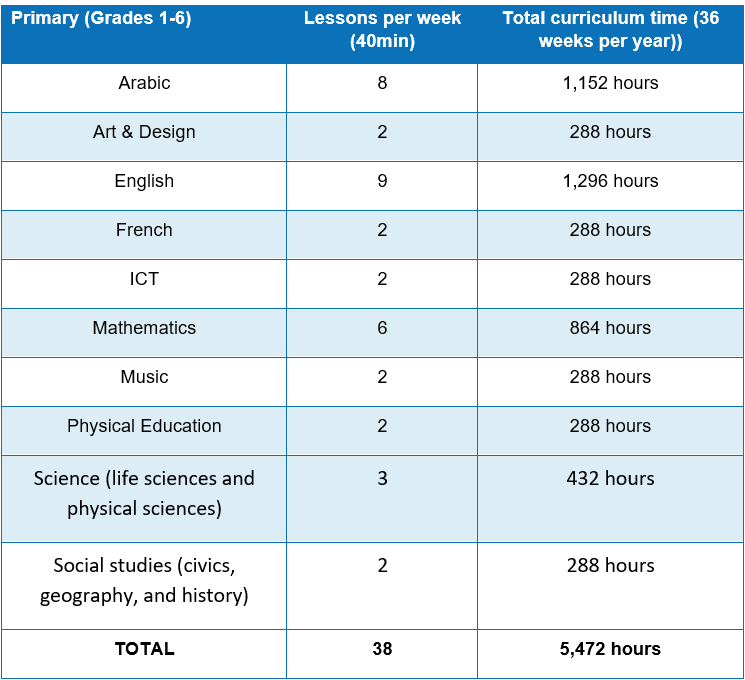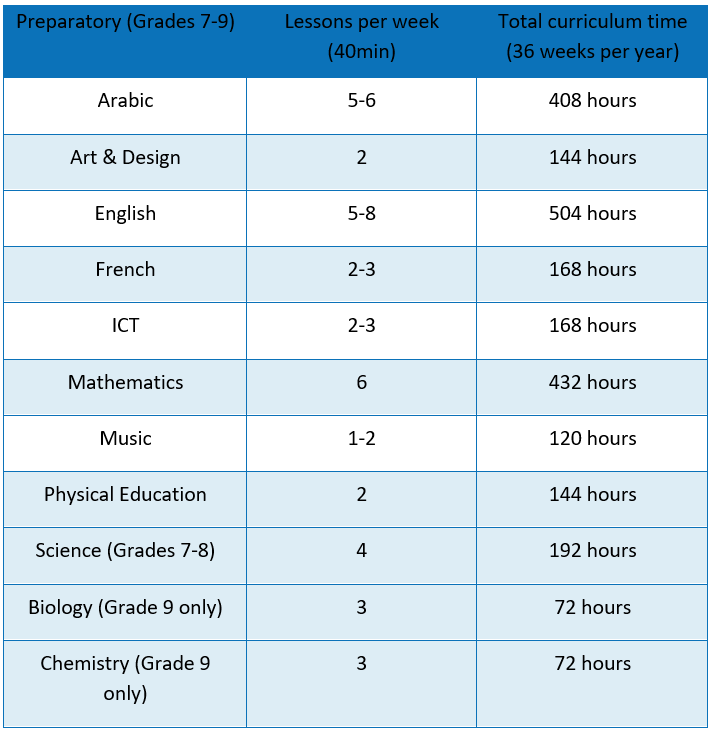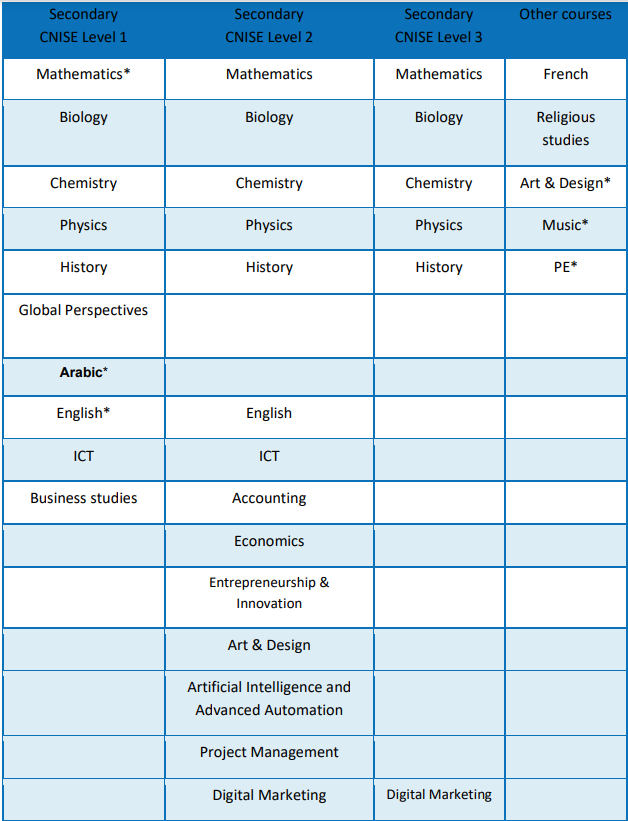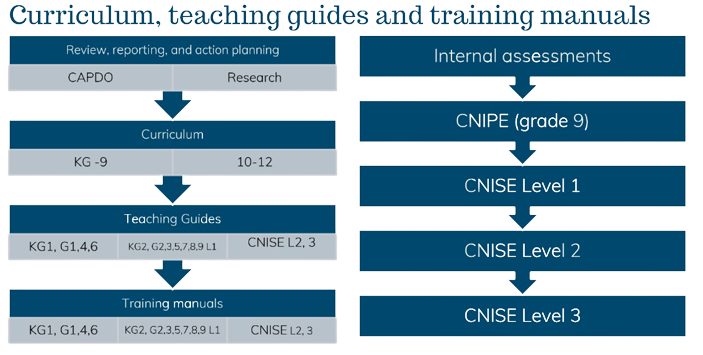NIC Curriculum
Home / Curriculum
Structure of the NIC curriculum
The four programmes of the Nile International Education System curriculum
Structure of the curriculum
School curriculum Time
-
School curriculum Time: Primary stage

-
School curriculum time: Preparatory Stage

-
School curriculum time: Secondary Stage
Subjects available in the Nile International Education System curriculum in the Secondary stage (Grades 10-12). * Indicates compulsory courses. Subjects in bold are taught and assessed in Arabic.

The NIC Curriculum Frameworks
These documents will include:
a statement of the aims, purpose, and significance of the subject in the curriculum
a systematic account of the knowledge, understandings, skills, attitudes, and values appropriate to each stage
a statement of the expected student learning outcomes for the majority of students at the end of each stage, which will form the basis for the end-of-stage achievement tests or summative examinations
an overview of the requirements for formative assessment by teachers during the stage
an account of the cross-curricular skills and connections appropriate to the stage
The objective is that the documents can be used flexibility for different purposes and audiences.
These Framework documents are addressed to subject advisors, NIC consultants, Principals, senior leadership, subject leaders, and mentors in the NIC schools, teachers, and parents. They will enable these stakeholders to understand what is required to be taught and what students are expected to learn in each subject throughout the age-range and at each stage. As well as providing an overview of an individual subject, read in conjunction these documents will enable stakeholders to obtain a picture of the full curriculum as it is experienced by students at a specific stage.
The NIC Teaching Guides

This series of documents provide detailed guidance to teachers for each subject at each grade level, identifying the scope of what is to be taught in the subject and the sequence of topics and skills, where appropriate.
The Teaching Guides include further explanation and/or exemplification of the knowledge and skills to be delivered;
essential vocabulary; suggested teaching activities; extension and support activities; and suggested teaching
resources.
Overall, the Teaching Guides provide enough detail so that an NIC teacher, trained in the subject and at the level
to be taught, will be able to achieve success in teaching the new curriculum to NIC students.
The content of the Teaching Guides will also be used as the basis for formative assessment, and in particular for
the design of the Progression Tests in Grades 4, 5, 6, 7 and 8.
The Teaching Guides documents are specifically addressed to new NIC teachers, although they will also be of use to
middle and senior leadership in the NIC schools, NIC Consultants, Principals, and parents.
It is important that the Teaching Guides are seen as Guides and not as prescriptive documents, as teachers will
need to make adjustments in response to the needs and performance of students in the classes as they teach.
In addition, in the medium term, it is important that teachers develop the skills to plan their own units of work
to deliver the curriculum frameworks. This will ensure that the NIC curriculum continues to develop in-line with
changing student need.








